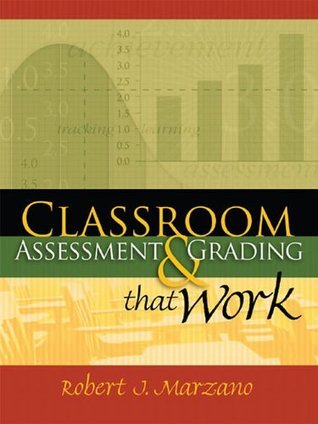What do you think?
Rate this book


In Classroom Assessment and Grading That Work, Robert J. Marzano provides an in-depth exploration of what he calls “one of the most powerful weapons in a teacher’s arsenal.” An effective standards-based, formative assessment program can help to dramatically enhance student achievement throughout the K–12 system, Marzano says. Drawing from his own and others’ extensive research, the author provides comprehensive answers to questions such as these:
• What are the characteristics of an effective assessment program?
• How can educators use national and state standards documents as a basis for creating a comprehensive, topic-based assessment system?
• What types of assessment items and tasks are best suited to measuring student progress in mastering information, mental procedures, and psychomotor procedures?
• Why does the traditional point system used for scoring often lead to incorrect conclusions about a student’s actual knowledge?
• What types of scoring and final grading systems provide the most accurate portrayal of a student’s progress along a continuum of learning?
In addition to providing teachers with all the tools they need to create a better assessment system, Classroom Assessment and Grading That Work makes a compelling case for the potential of such a system to transform the culture of schools and districts, and to propel K–12 education to new levels of effectiveness and efficiency.
189 pages, Kindle Edition
First published December 1, 2006